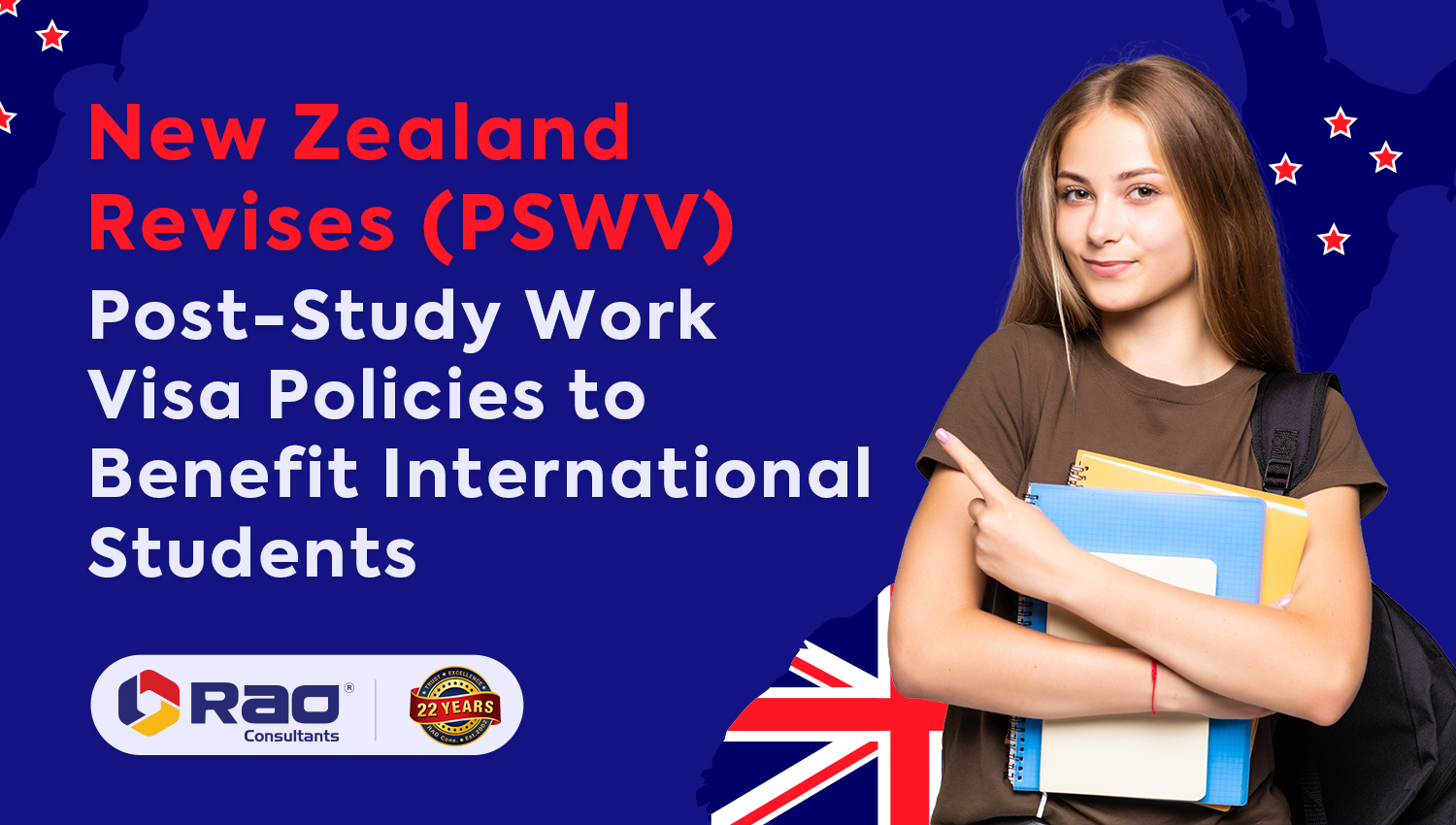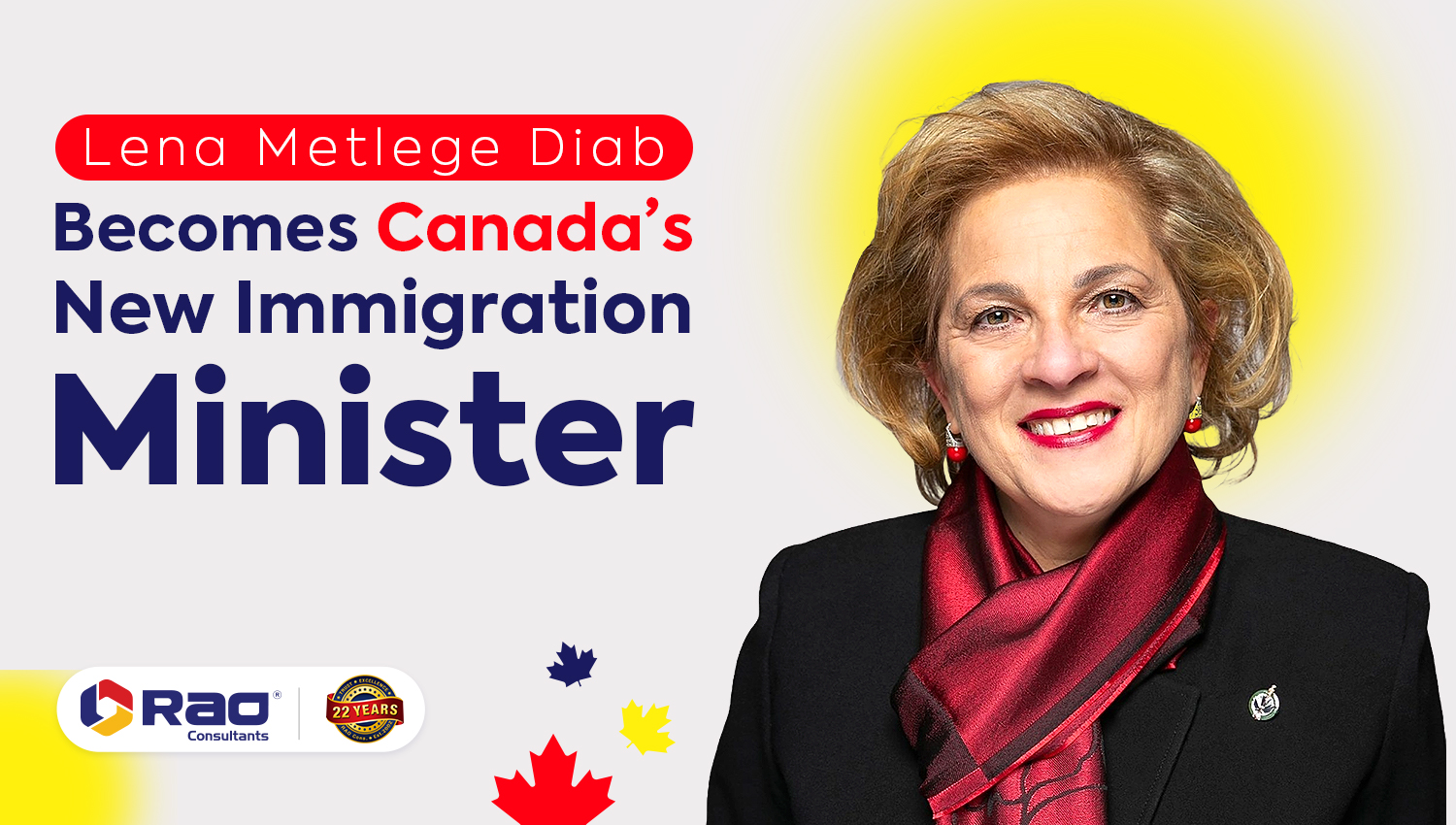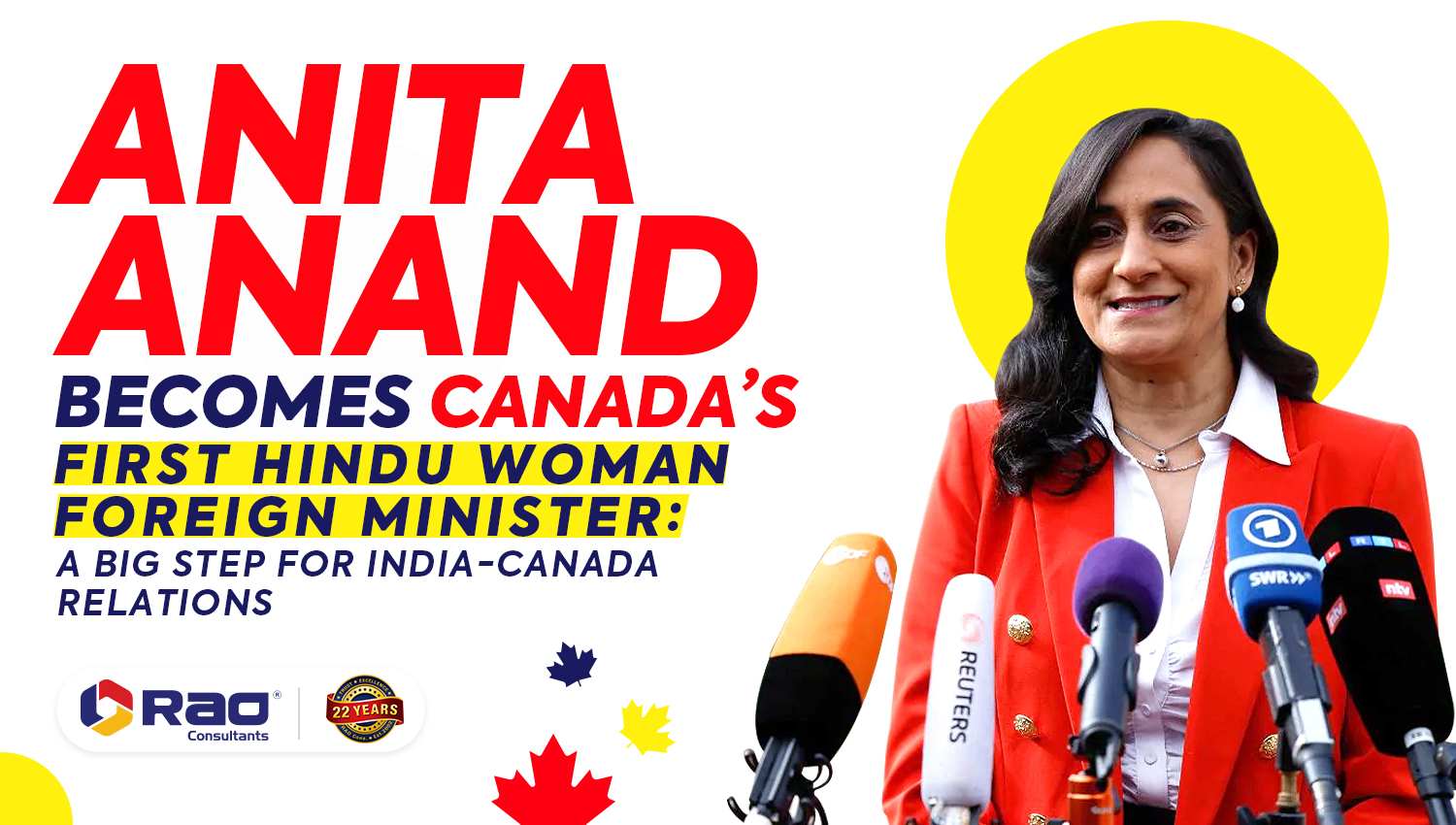News


Rao Consultants
November 27, 2024
New Zealand Revises (PSWV) Post-Study Work Visa Policies to Benefit International Students
![]()
New Zealand has recently updated its Post-Study Work Visa (PSWV) regulations in an effort to simplify the transition from school to work. With effect from November 19, 2024, these adjustments seek to improve prospects for overseas students while matching credentials to the demands of the national job market.
Key Updates:
- Eligibility for Master’s Graduates: Students who successfully finish a minimum 30-week Postgraduate Diploma (PGDip) and proceed straight to a master’s degree without fulfilling the master’s program’s 30-week enrollment requirement can now apply for a PSWV based on their PGDip enrollment. After completing their courses, these students will still be able to work in New Zealand thanks to this modification.
- Application Period: Graduates must submit their PSWV applications within a year after the expiration of their student visa in order to receive their initial qualification. Students can efficiently organize their move from education to job within this timeframe.
- Duration of PSWV: To achieve a three-year PSWV, students must complete at least 30 weeks of full-time study in New Zealand, specifically in the master’s degree program. This criteria highlights the value of extensive in-country study experience.
- Qualification Alignment with the Green List: The list of credentials required for a PSWV has been revised to reflect New Zealand’s Green List, which identifies in-demand occupations. Notable modifications include:
- Secondary school teachers are no longer required to have a bachelor’s degree in science, mathematics, technology, or Pacific languages.
- Graduates with diplomas who complete the Teaching Council’s registration standards can now receive a PSWV to teach primary or intermediate school students.
- Mechanical Engineering Technicians can now apply for a PSWV after completing the New Zealand Diploma in Engineering (Level 6), which includes a strand in Mechanical Engineering.
How This Affects Indian Students :
These revisions provide intriguing chances for Indian students who want to study and work in New Zealand.
Flexibility in Higher Education Transitions:
Indian students transferring from a PGDip to a master’s degree can now keep their PSWV eligibility without satisfying any extra enrollment requirements.
Expanded Teaching Opportunities:
Those interested in teaching can pursue more diverse professions with less constraints, notably in the elementary, intermediate, and secondary school sectors.
Boost for Engineering Graduates:
Mechanical engineering students can now use their qualifications to acquire actual work experience thanks to the amended PSWV guidelines.
Why These Changes Matter ?
These changes demonstrate New Zealand’s dedication to keeping talented foreign graduates in order to develop a competent workforce. They assist students and the economy by clarifying visa eligibility and matching credentials to labor market demands.
What Should Students Do Next?
- Examine the Updates: If you want to study in New Zealand, be sure these changes fit your academic and professional objectives.
- Seek Expert Advice: To guarantee a seamless application procedure and to learn how the new regulations relate to your situation, speak with visa specialists.
These revisions demonstrate New Zealand’s dedication to drawing in and keeping talented foreign graduates by offering accessible and transparent career paths from school to work. It is advised that prospective students thoroughly go over these modifications and evaluate how they fit with their academic and professional goals.
You May Also Like

Canada’s Proposed Citizenship Bill: A Landmark Opportunity for the Global Indian Diaspora
Canada is once again reaffirming its image as one of the world’s most inclusive and forward-thinking nations with a historic new bill—Bill C-3, introduced on June 5, 2025—that seeks to restore and expand citizenship rights, especially for those known as the “Lost Canadians.” This reform, if passed, is expected to have a far-reaching impact, particularly […]
Read More
Lena Metlege Diab Becomes Canada’s New Immigration Minister
![]()
Lena Metlege Diab has been appointed as Canada’s new Minister of Immigration, Refugees and Citizenship. The announcement was made on May 13, 2025, as part of a cabinet change by Prime Minister Mark Carney. Diab takes over from Rachel Bendayan, who briefly held the role after Marc Miller. This new position puts Diab in charge […]
Read More
Anita Anand Becomes Canada’s First Hindu Woman Foreign Minister: A Big Step for India-Canada Relations
![]()
Anita Anand has made history by becoming Canada’s new Minister of Foreign Affairs. She is the first Hindu woman to take this important role, showing how Canada is becoming more diverse and inclusive. Her appointment could also help improve the relationship between India and Canada. Her Journey in Politics Before entering politics, Anita Anand was […]
Read More